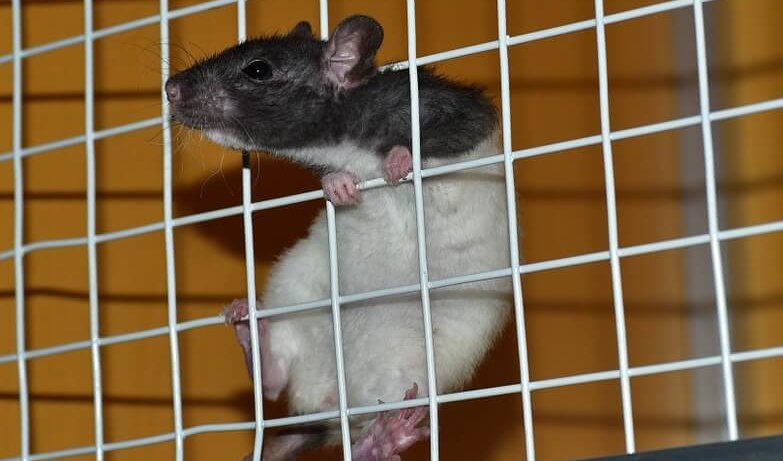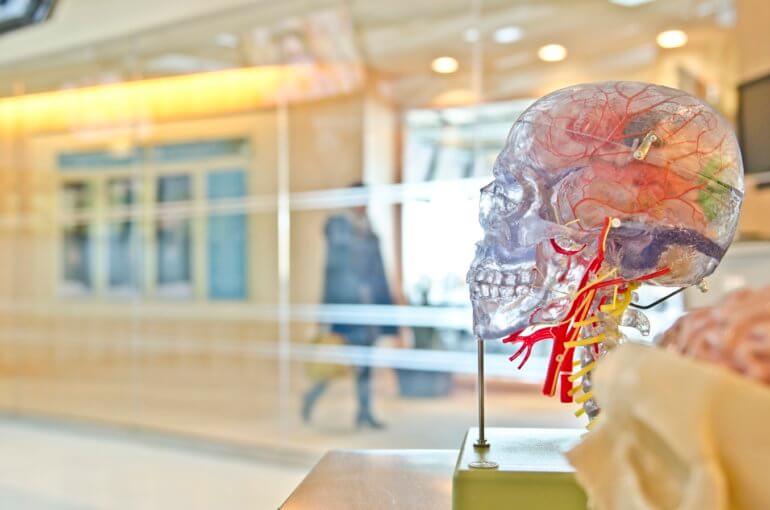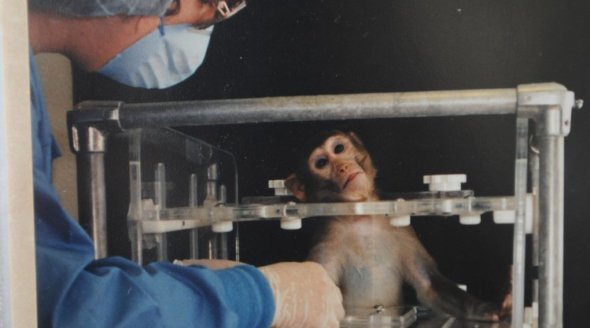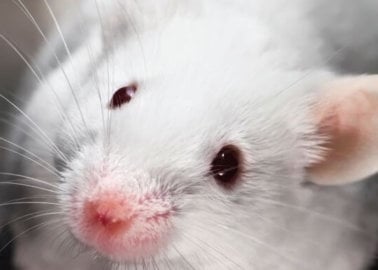5 Reasons Why Testing on Animals for Parkinson’s Disease Research Is Cruel and Unreliable
Testing on animals in the search for a treatment for Parkinson’s or any other disease is unethical, wasteful, and dangerous. For one, the disorder doesn’t naturally occur in other animals.
The species commonly used in experiments – including monkeys, rats, and mice – suffer from artificially induced Parkinson’s-like symptoms, and the results are inapplicable to humans. Experimenters condemn animals to cages until they’re no longer of use, then they dispose of them like inanimate laboratory supplies. Here’s why tests on animals must stop:
- Animals Are Suffering in Laboratories for Bad Science
Historically, experimenters have attempted to recreate aspects of Parkinson’s disease in mice, dogs, monkeys, fish, frogs, and other animals, but a growing number of researchers are recognising the limitations of this method. Parkinson’s is human-specific and doesn’t occur naturally in other animals. In fact, no method using animals has been developed that can replicate all aspects of the condition, and human patients are suffering as a result of the lack of effective treatments and cures.
- There Are Many Modern, Animal-Free Methods
Forward-thinking scientists are developing humane, modern, and effective non-animal methods – from human tissue models to 3-dimensional printing, advanced imaging techniques, and organs-on-chips. Promising progress has already been made, but many more resources must be devoted to the development of animal-free methods. A switch to human-relevant methods for basic research and drug development is long overdue. - There Have Been Animal-Free Breakthroughs in Parkinson’s Research
A critical factor to consider in drug development for conditions such as Parkinson’s is the blood-brain barrier – that is, how can we get a potential new drug to cross over from a patient’s bloodstream into the brain? A team of researchers at Vanderbilt University in the US has engineered a blood-brain barrier-on-a-chip, a device approximately the size of a computer memory stick that uses human cells and precise engineering to recreate the microenvironment of the human body.Similarly, a US-based biotechnology company was recently awarded a government grant to develop its predictive preclinical living model of the blood-brain barrier as an alternative “to traditional pharmaceutical drug development testing on laboratory animals”, which will “reduce costs and minimize clinical trial failures”.
- The Public Is Calling For a Future Without Animal Testing
We wholeheartedly expect a future in which tests on animals are not tolerated. A 2016 poll on animal testing by market research company Ipsos MORI revealed that 74 per cent of the British public wants to see more work done to implement non-animal research methods and that more than half the population is concerned about the use of animals in laboratories.
As more politicians, scientists, and members of the public become aware of the severe limitations of experiments on animals and the pain and suffering endured by the animals used, there will be a substantial push for animal-free research. - Experiments on Animals Are Fruitless
Time and time again, systematic reviews have found that experiments on animals result in fruitless clinical trials that can endanger human life – in addition to costing billions of pounds and causing the suffering of millions of animals.All sentient beings share the capacity to suffer, but different species have different physiologies and metabolisms. Using one to identify the traits of another will always be fraught with issues.
What You Can Do for Animals Imprisoned in Laboratories
An animal-free research revolution will benefit everyone. Non-animal methods are often faster and more accurate. And where we’ve seen the testing of cosmetics on animals banned, we’ve seen a boom in the development of superior, non-animal tests. All it takes is for national governments, European officials, and organisations to invest more in animal-friendly strategies or stop funding cruel animal experiments.
You can help animals in laboratories in just a handful of clicks by adding your name to five of PETA’s crucial petitions and letters:









